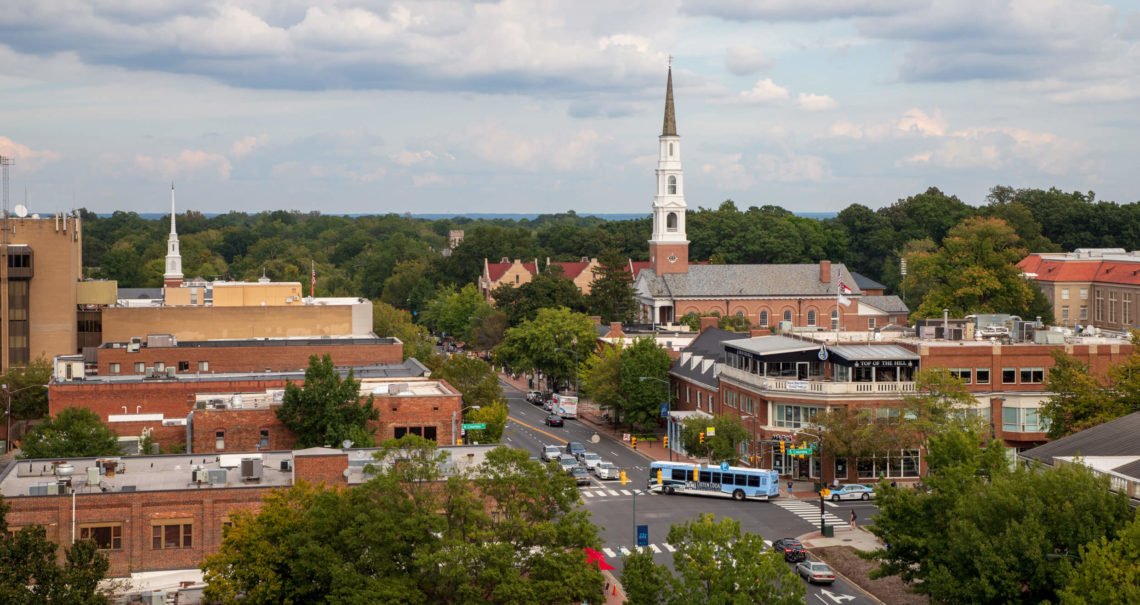Even though we have been studying sleep disorders and figuring out how to treat them for decades, we are still learning new things about them every day. That’s why, as our knowledge has increased in recent years, we have been finding new ways to treat obstructive sleep apnea.
At our dental office, we know that one of the most effective ways to treat it is to use a sleep apnea oral appliance. After you’ve been diagnosed with obstructive sleep apnea, we can provide you with an oral appliance for sleep apnea in Chapel Hill.
If you believe you’re exhibiting common symptoms of obstructive sleep apnea, it’s important to visit your doctor so they can help you determine if you actually have it. They will usually diagnose you after you undergo a sleep study. Some of the most common symptoms to watch out for include consistent daytime fatigue or gasping in your sleep.
While there are a variety of factors that contribute to obstructive sleep apnea, recent studies now show that there may be another factor that can help us better understand obstructive sleep apnea: the gut.
While our dental practice in Chapel Hill can treat obstructive sleep apnea with a sleep apnea oral appliance, we believe that taking care of your body can also help you avoid a slew of other problems. We value educating our patients on conditions like sleep apnea. That’s why Dr. Ralph Mensah has written this blog to explain everything you need to know about the relationship between sleep apnea and the oral-gut microbiome.
First, let’s examine what sleep apnea is.
What Is Obstructive Sleep Apnea?
Obstructive sleep apnea is known as the most common type of sleep apnea. It happens when the muscles near the back of the throat relax too much while you sleep. This causes the airway to “collapse,” which wakes you up in the middle of the night to catch your breath.
There are a variety of reasons why some people develop obstructive sleep apnea. This specific type of sleep disorder is more prevalent in people who are obese, people who have relatives who snore, and men. Smoking, allergies, and alcohol can also cause it or make it worse.
It’s important to note that you may not notice the symptoms of obstructive sleep apnea right away. In fact, it may take a while to suspect you have it. It’s also not an immediate danger to your health. However, it can still impact your health negatively if you never treat it.
How Your Oral-Gut Microbiome Affects You and Interacts With Obstructive Sleep Apnea
Your oral-gut microbiome is a complex system that affects you in a variety of ways. It is made of different kinds of microorganisms, although bacteria play a key role. The inside of your mouth has its own environment that is different from your gut. However, because the mouth feeds the gut, the two are interconnected.
The oral-gut microbiome is a key factor in your health since it can be the reason you develop a systemic disease or an oral disease. When the equilibrium of the gut and the oral cavity are thrown out of whack, pathogens can manifest and lead to debilitating diseases.
Figuring out how to keep your oral-gut microbiome balanced will essentially protect you from severe illness and may also help regulate your emotions. One study even suggests that balancing your oral-gut microbiome may help reduce the effects of obstructive sleep apnea.
Will Probiotics Cure Obstructive Sleep Apnea?
It’s important to note that, while studies do show that the oral-gut microbiome has a significant impact on your health, there is no conclusive evidence that taking care of gut health or oral health will cure sleep apnea. It may help alleviate the severity of symptoms over time, but in order to truly get a good night’s rest, you need to combine oral-gut microbiome balancing methods with an oral appliance for sleep apnea.
Probiotics are one of the best ways to balance your oral-gut microbiome. They can be found in pill form at your local pharmacy, or you can order the pills online. Some of the best probiotic pills for oral health include Lactobacillus salivarius, Streptococcus salivarius M18, and Lactobacillus reuteri.
You can also balance your gut health by eating foods that contain natural probiotics. The following foods are good for both your gut health and your oral health:
Kefir
This fermented milk drink is popular in Turkey but can also be found in the United States at some grocers. It is made by combining kefir grains with goat's milk or cow's milk. Not only does it help with your digestive health, but it also reduces your chances of developing infections.
Tempeh
For those who enjoy the taste of mushrooms, tempeh is a great solution for balancing your oral-gut microbiome. It is made out of fermented soybeans, which also makes it vegan-friendly. It also contains Vitamin B12, which is vital for brain and nerve development.
Yogurt
Yogurt is a popular staple for many people around the world, and it can be served either sweetened or unsweetened. Dairy is important for your oral health because it contains calcium, which is great for your teeth. Yogurt in particular also contains plenty of probiotics to improve your gut health.
Why You Should Get a Sleep Apnea Oral Appliance in Chapel Hill
Since probiotics won’t resolve obstructive sleep apnea completely, you may be wondering what else you may need to get to help you rest easy at night. In some cases, doctors will treat patients with obstructive sleep apnea with a CPAP.
A CPAP is a machine attached to a mask that provides patients with pressurized air while they sleep. The pressure keeps the airway from closing up as the muscles try to relax. For the treatment to be effective, however, patients must wear their CPAP mask every night, all night.
Thankfully, CPAP machines aren’t the only way to treat sleep apnea. Depending on the severity of your condition and your needs, you can also combat obstructive sleep apnea with a sleep apnea oral appliance.
The sleep apnea oral appliance works by keeping your jaw in the right position throughout the night, which then prevents the muscles in the back of your throat from relaxing too far. It also helps prevent snoring and dry mouth, which are also common symptoms of obstructive sleep apnea.
Where to Get an Oral Appliance for Sleep Apnea in Chapel Hill
If you’re looking for a comfortable oral appliance for sleep apnea in Chapel Hill, our dental team at Integrative Holistic Dentistry has got you covered. Our dental services and holistic dental procedures are designed to treat the whole patient, not just their oral health.
Our dentist, Dr. Mensah, understands just how important it is to make sure your teeth and the rest of your body are taken care of. That’s why he uses advanced dental technology to give you the oral health solutions you need, which includes sleep apnea oral appliances.
Contact us today to schedule an appointment and find out how you can curb the effects of obstructive sleep apnea.





























